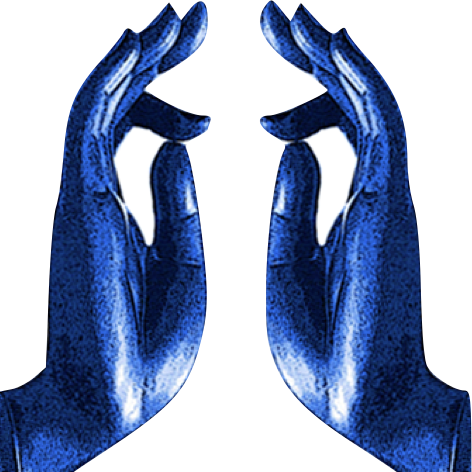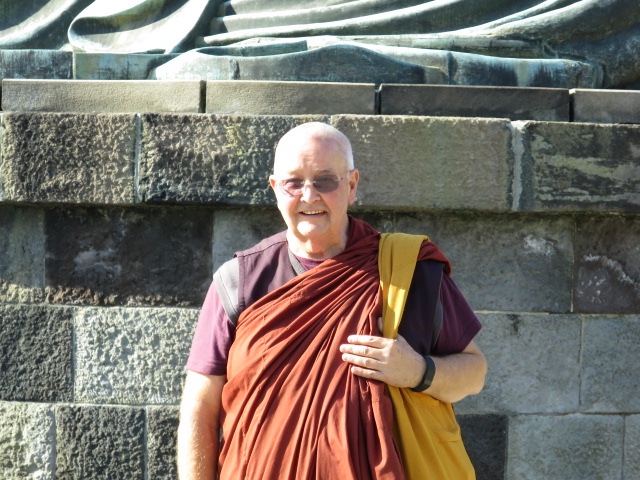If you are aware that you are alive, that you have twenty-four hours to create new joy, this would be enough to make yourself happy and the people around you happy.
Thich Nhat Hanh
Most of the time the articles which appear in our little newsletter are centred on aspects of practice or attempt to explicate or unravel some elements of the Dhamma of the Buddha. They try to provide guidance for meditation practice or explore and perhaps deepen our understanding of Dhamma. The problem with this approach is that no matter how well written or how well intentioned we inevitably remain on the outside “looking in”. How can we break or find an alternative to this more intellectually focused approach? One answer is it seems to me to approach our lived experience and in particular to see through the eyes of a master practitioner of the Dhamma. I would like to share with you very briefly a most precious time I spent with the Venerable teacher Thich Nhat Hanh and something of what I learned from him.
Some years ago, I was fortunate enough to undertake a retreat at Plum Village in France. I spent a very cold month there in winter. The potholes in the small paths outside the kutis were filled with large pieces of ice every morning and the sun shone only weakly and briefly each day. Moving from the kuti to the main Sala or Meditation Hall each morning one had to be well rugged up with hat and scarf. While I saw Venerable Thay every few days and heard him give a talk very occasionally I did not have the opportunity to speak with him until one day in the Sala when a ceremony was to be performed and I was the next most senior monk to venerable Thay, the others being away, he told me that I would have to perform the ceremony with him in front of the community.
I was astonished as I am from a different tradition and had no experience of such a ceremony except as an observer. I sat down next to Thay at his invitation and whispered to him that I thought I could not do this and that he should choose another monk regardless of seniority. He was silent, then turned to me and smiled saying, “Simply do as I do”. I centred myself on Thay and did as I was told. The ceremony ended and he and the community seemed satisfied. Some few days later I had the chance to spend a day with Thay at his residence quite some distance from Plum Village.
All morning he said not a word. I kept waiting for some “wisdom” or guidance, but he was silent. Then in the early afternoon as we emerged from the house into the garden, he walked straight up to me and looking directly into my eyes he said almost in a whisper, “Such a beautiful day”. In that very moment it was as though he had taken me by the shoulders and said wake up and look. We then went for walking meditation in silence through the fields. Nothing further needed to be said. Walking behind Thay in his thundering silence was enough. I have treasured that moment in my heart ever since. I was reminded of my own beloved teacher in Thailand calling out to me at odd times during the day, “Are you sick of yourself yet?” (or more literally in Thai are you bored with yourself yet?) and when I answered (sadly and sometimes dejectedly) “No, not yet” he would laugh and say, “Well, hurry up then.”
With much metta, Bhante Tejadhammo

